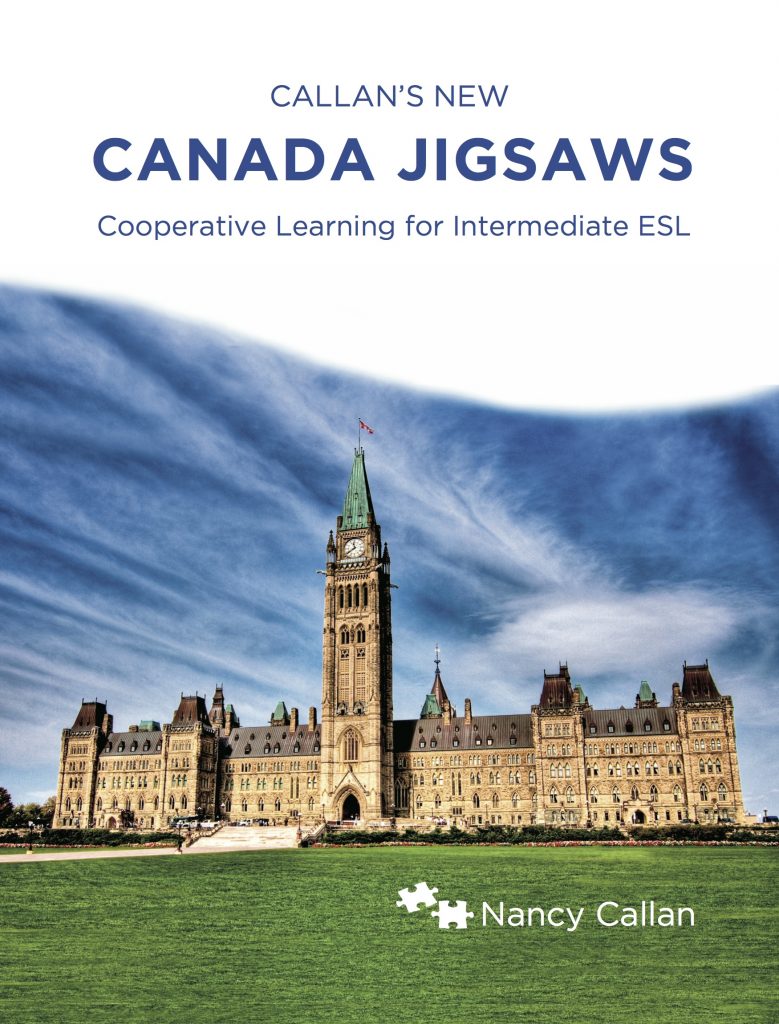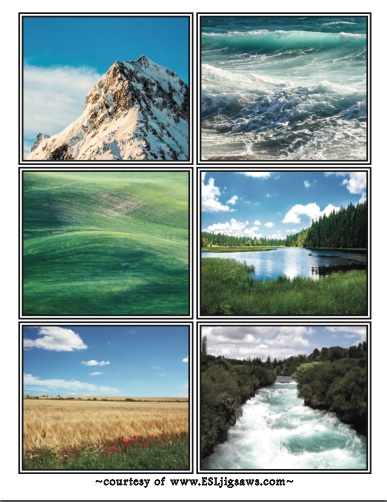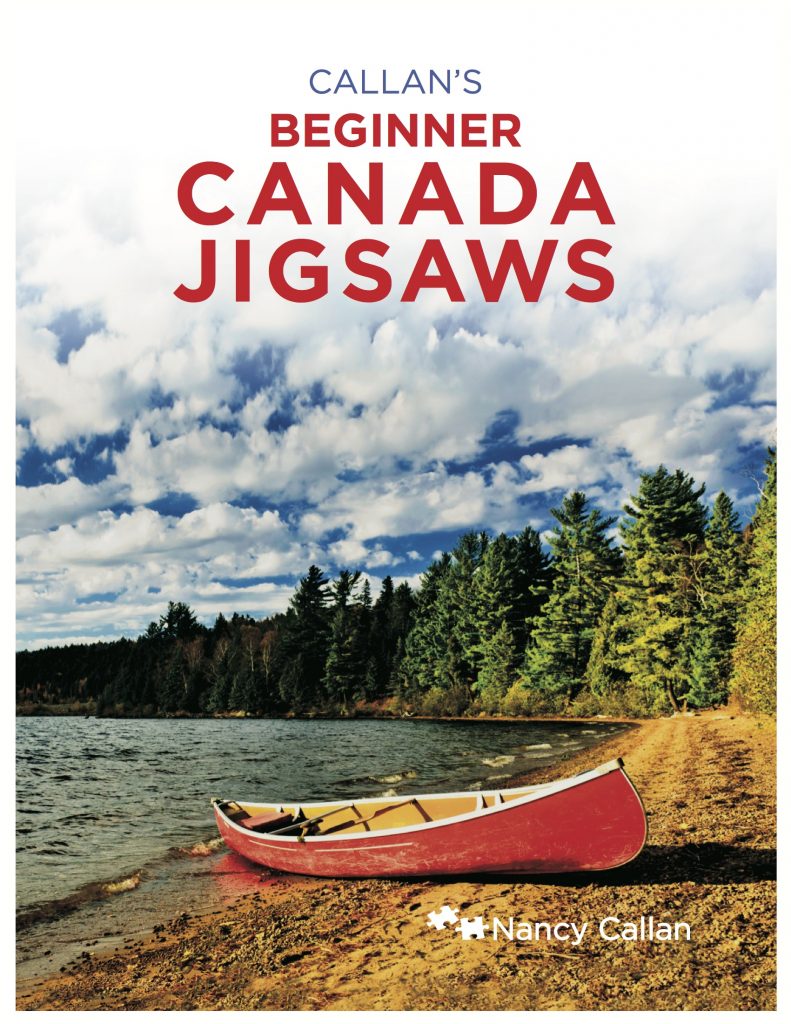Over 35 field testers from all across Canada field tested Callan’s New Canada Jigsaws. Here are a couple highlights of some of the fun field testers had.
Field tester Marianne Akune in Richmond says her class “thoroughly enjoyed” the government unit. Well no wonder! This creative teacher turned one of the follow up exercises into a smart board activity:
” I used the text to create a SmartBoard activity. I transposed each paragraph onto one page, and the students did a “click and drag” (or touch and drag) activity with it.”
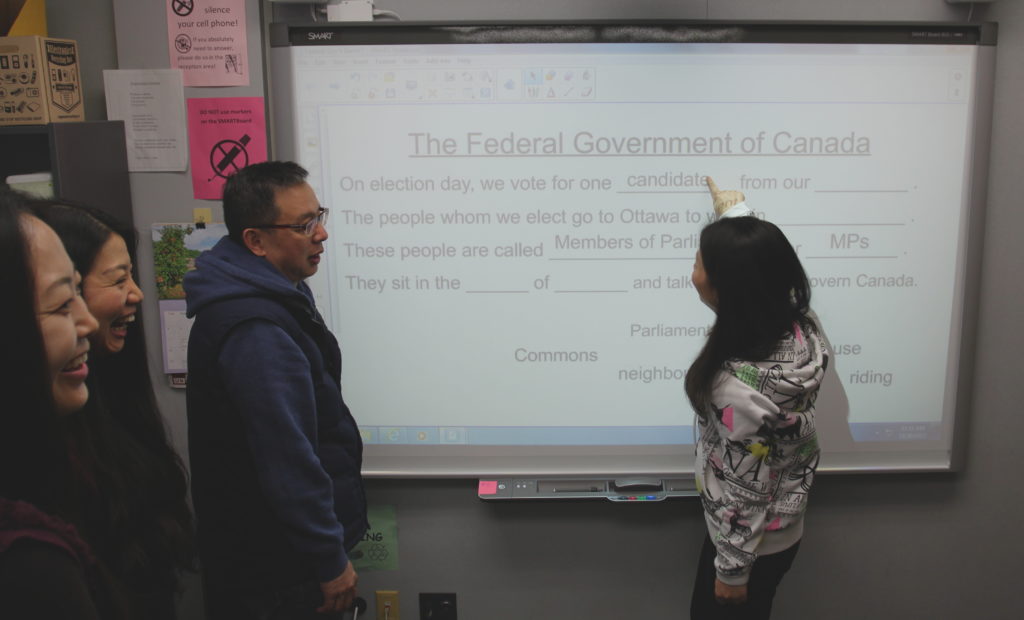
Field tester Tracey Curell in Winnipeg took the punctuation and capitalization out of the Folklorama paragraph writing exercise to see what her students could do.
“They loved the activity, and it also caused lots of discussion about how to do a group project when there are differences of opinions. (As you said there are a few ways you could put it together.) I have attached a few samples of the end results for you, so you can enjoy seeing that you created yet another successful activity! I can’t wait for the book!”
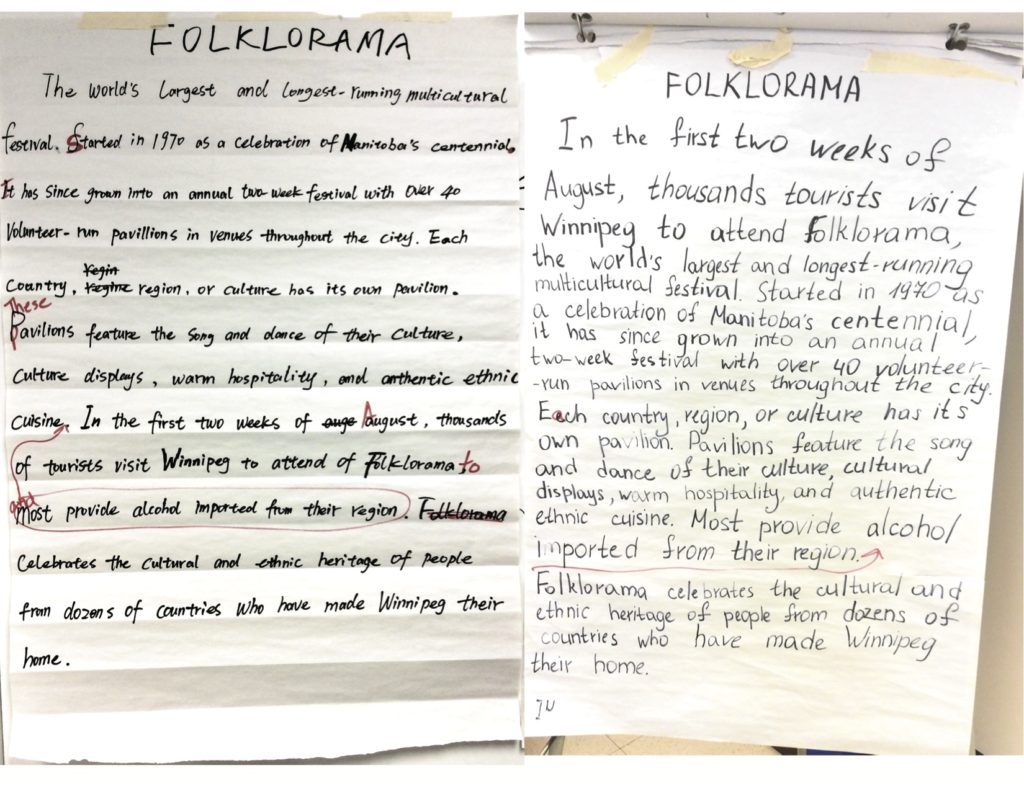
Here below is Tetiana’s LINC 6 class in Edmonton field testing the Alberta jigsaw.
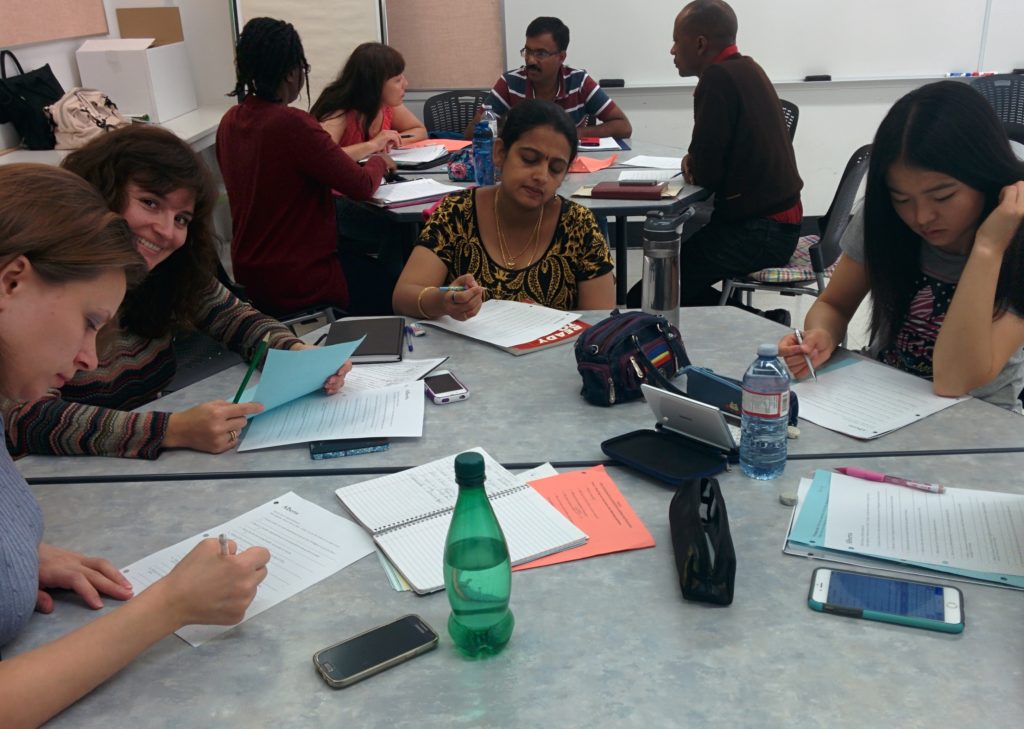
Here below is Tracey’s LINC 4-5 class in Winnipeg field testing the PEI unit.
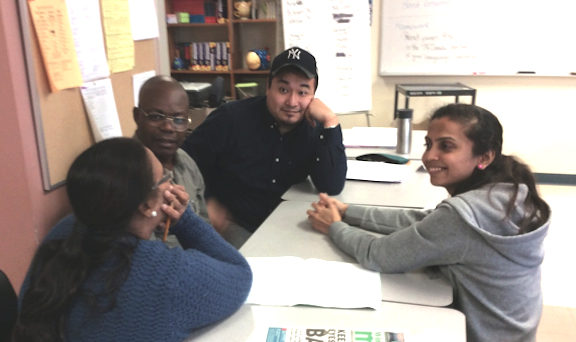
Here below is Smiljka’s CLB 4-5-6 class in Sudbury field testing the New Brunswick unit.

Here below is Steven’s CLB 5-6 class in Saskatoon proving jigsaws can work even if you don’t have groups of four.

Here below are five students from Marianne’s class in Richmond field testing the government unit.

And here’s the final product!
